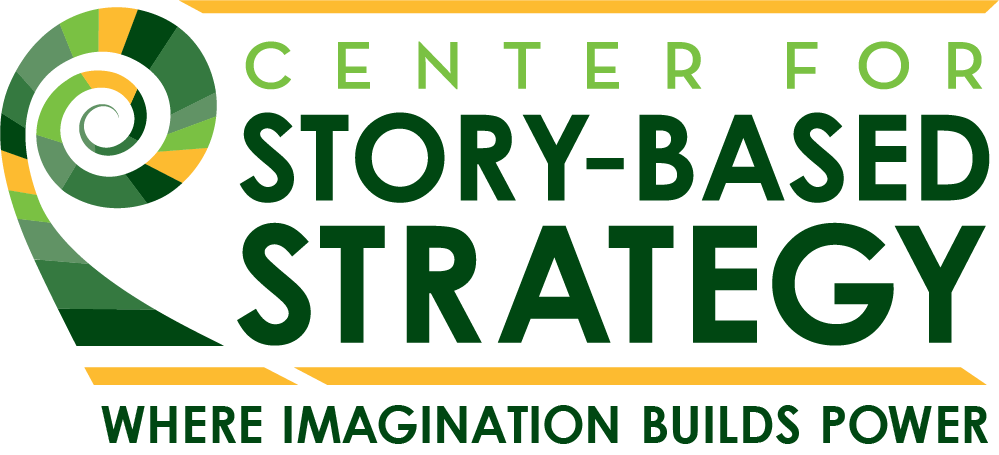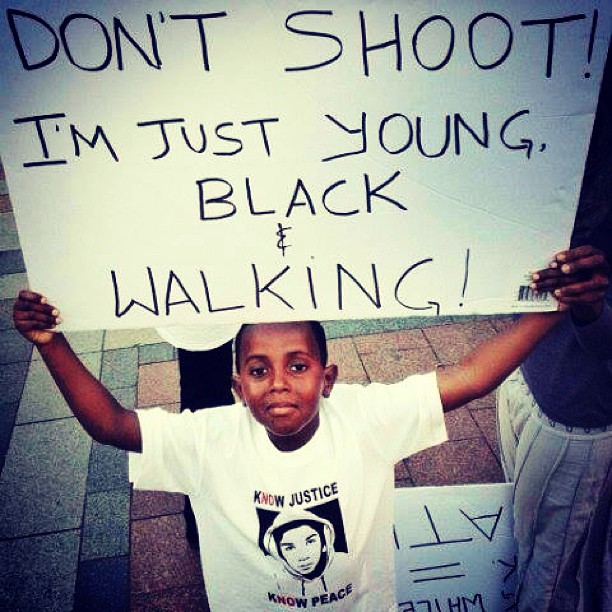Trayvon and the movement for racial justice
Why is that when you see a black kid in a hoody you think thug, but when you see a white kid in a hoody you think Mark Zuckerberg?
—Van Jones
The murder of Trayvon Martin, and subsequent acquittal of shooter George Zimmerman, caused massive outrage across the country.
BLACK LIVES MATTER
People took to the streets, airwaves, and interwebs in protest. BlackLivesMatter went viral as "a call to action and a response to the ways in which our lives have been devalued."
WE ARE NOT TRAYVON MARTIN
From Jet Magazine:
“We are not Trayvon,” you repeat to yourself disbelievingly, and then click.
Suddenly, you understand. It’s a sea of faces, mostly white, and yes, they are stating unequivocally that they are not Trayvon Martin. However, it is clear that they care deeply about the young boy who could’ve easily been your brother, nephew, son, or best friend.
And they are acknowledging that they aren’t Trayvon because they aren’t the victims of a lopsided stop and frisk policy, don’t get coached by their parents on how to deal with a biased police officer, or get followed through stores and ignored at restaurants. Rarely, if ever, have they had to watch a woman clutch her purse in fear when they walk into an elevator or hear the audible click of car doors locking as they cross a residential street.
See more on this Storify, including the post by Jospeph Phelan that started it all.
RACIAL JUSTICE LEADERS ON WHAT'S NEXT
"Fifty years after the March on Washington, no one can argue that America has not seen big advances in race relations – or that we have reached the promised land. People of color today face a very different, and in some ways, more complex form of “polite,” systemic racism. This roundtable brought together a wonderful mix of the next generation of civil rights activists who talked about how to Reinvent the Civil Rights Movement to deal with this new form of racism. From bringing together coalitions of diverse racial groups to making alliances with the young generation of whites, the team talked about the necessary steps to start conversation, and how we can take advantage of powerful digital tools that would have dazzled those in Martin Luther King’s time. Watch and share your thoughts."
Rinku Sen, President and Executive Director of Race Forward, formerly ARC, writes in Colorlines.com:
"We are definitely at the brink of something. I hope that it is a racial justice movement, one that builds on the legacy of civil rights while bringing crucial new elements to our political and social lives. We have a chance to explore fundamental questions like the nature of racism, what to do with the variety of racial hierarchies across the country, and how to craft a vision big enough to hold together communities who are constantly pitted against one another.
Using the racial justice frame allows us to fight off the seductive, corrupt appeal of colorblindness, which currently makes it difficult to talk about even racial diversity, much less the real prize of racial equity. Such language also allows us to move beyond the current limitations in civil rights law to imagine a host of new policies and practices in public and private spaces, while we also upgrade existing civil rights laws at all levels of government. Finally, the modern movement has to be fully multiracial, as multiracial as the country itself. The number and variety of communities of color will continue to grow. If all of our communities stake out ground on race, rather than on a set of proxies, we will more likely be able to stick together when any one of us is accused of race baiting." Read the full article here from Colorlines.com


